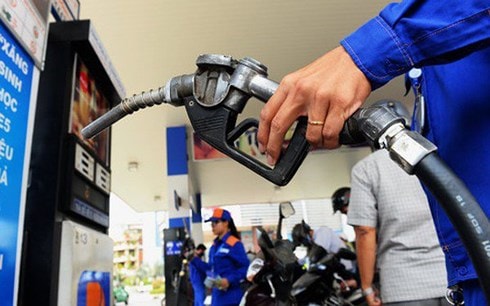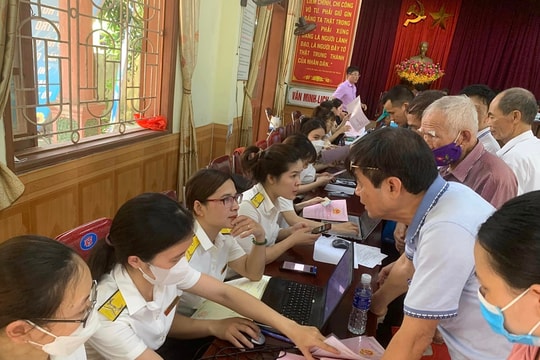How is environmental protection tax collected from gasoline used?
The Ministry of Finance said that in the 2012-2016 period, state budget expenditure on environmental protection was higher than total revenue from environmental protection tax.
Regarding the proposal of the Ministry of Finance to increase the environmental protection tax on gasoline, public opinion has many questions about the transparency of the use of environmental protection tax revenue.
|
| Illustration: KT |
According to the explanation of the Ministry of Finance, kRevenue from environmental protection tax (EPT) is not a direct price-comparable and refundable revenue, and is not used for specific spending tasks but to carry out spending tasks as prescribed by the State Budget Law (NSNN) and approved annually by the National Assembly.
The State Budget Law stipulates that revenues from taxes, fees, charges and other revenues as prescribed by law are fully included in the State budget balance, according to the principle of not being linked to specific spending tasks.
According to the proposal of the Ministry of Finance, from July 1, 2018, the environmental protection tax on gasoline will increase from 3,000 VND/liter to the maximum of 4,000 VND/liter, diesel will increase from 1,500 VND/liter to the maximum of 2,000 VND/liter, lubricants will increase from 900 VND/liter to the maximum of 2,000 VND/liter, and grease will increase from 900 VND/kg to the maximum of 2,000 VND/kg.
Specifically, the Ministry of Finance said that the total state budget expenditure for environmental protection tasks in the 2012-2016 period was about 131,857 billion VND, an average of about 26,371 billion VND/year, higher than the environmental protection tax revenue in the 2012-2016 period.In which, tTotal regular expenditure for environmental protection is about89,131billion VND (including expenses:for environmental protection (no more than 1% of total state budget expenditure);Projects to investigate and evaluate land, mineral geology, water resources, sea and island resources, etc.; respond to climate change, etc.; implement policies on land use management for rice cultivation, forest development, management of natural forest timber exploitation, support for exploitation and aquaculture, dike maintenance, agricultural extension, and irrigation public services;overcome pollution and improve the environment....
In addition, there are a number of contents and tasks paid by the State budget to contribute to environmental protection such as: projects and science and technology programs applying green and sustainable technology,...
Accordingly, implementing the environmental protection tax policy has contributed to reasonably mobilizing social contributions, creating additional revenue for the State budget to solve environmental problems with increasing demand...
Also according to the Ministry of Finance, revenue from environmental protection tax has continuously increased steadily over the years from 2012 to 2017. Specifically: In 2012, revenue was about 11,160 billion VND, in 2013 it was about 11,512 billion VND, in 2014 it was about 11,970 billion VND, in 2015 it was about 27,020 billion VND, in 2016 it was about 44,323 billion VND and in 2017 it was about 44,825 billion VND.
Environmental protection tax revenue accounts for about 1.36% - 4.27% of total state budget revenue and about 0.34% - 0.98% of annual GDP; in which, environmental protection tax revenue from petroleum and coal groups accounts for the majority (about 99%) of total environmental protection tax revenue over the years, contributing to shifting the state budget revenue structure towards sustainability, increasing the proportion of domestic revenue from 59% (2006-2010 period) to 68% (2011-2015 period), by 2015 accounting for 74% of total state budget revenue.
"The revenue from environmental protection tax has increased continuously over the years, contributing to stabilizing domestic tax revenue during a period when budget collection faced many difficulties due to having to cut import tax rates according to international commitments," the Ministry of Finance affirmed./.



